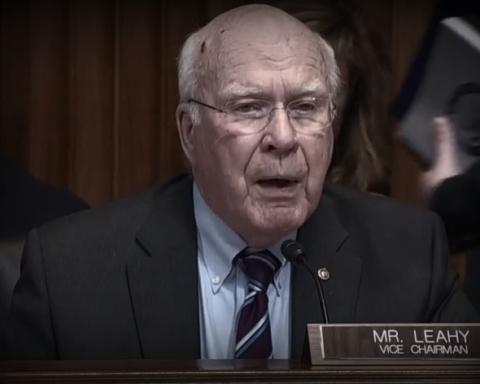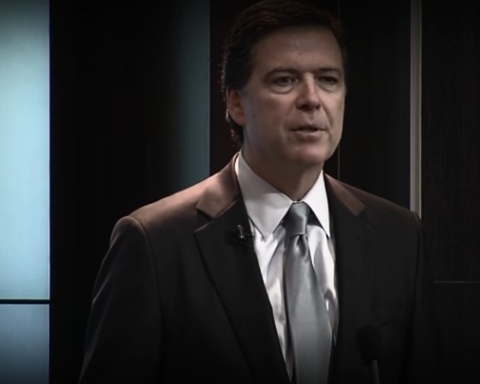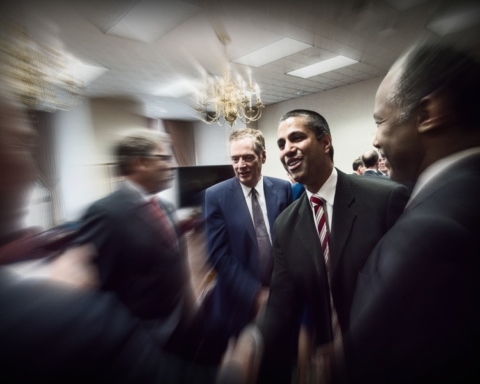This week–more than most, it seems–Washington is plugged into the economics of communications. Pitting himself against both content and internet service providers in favor of VIP connectivity, President Obama called for strong Net Neutrality rules. As usual for populist moves by the Democratic Party establishment, it is laudable, but ultimately a half-measure – a reaction to corporate enclosure of the online commons, rather than a move to expand access to them.
Perhaps the announcement was designed to bring to the fore what daylight still exists between Republicans and Democrats in the wake of a midterm election that disappointed the President’s party. The demoralized progressive rank-and-file, after all, lauded the move, while GOPers frothed at the mouth with disinformation to further the cause of wealth-sapping gate-keepers.
On one side were the plaudits of the almost 3.7 million Americans believed to have written pro-neutrality letters to the FCC. Many of whom reached out to the White House to come out strongly in favor of the rules, encouraged on Friday to do so by the famously anti-SOPA progressive advocacy group, Demand Progress.
On the other, were Ted Cruz and John Boehner et al.. insulting their conservative base by assuming it incapable of cursory search engine fact-checking. The former described the regulations as “Obamacare for the internet,” as if US citizens are currently fined for not logging on. The latter said that not ceding power to a parasitic oligopoly “hurts private sector job creation” and that the Obama administration “disregard[s] the people’s will” in doing so. Inconveniently for the pair, a poll released Monday showed that about 80 percent of Americans support Net Neutrality; that more Republicans than Democrats actually support the rules, and Americans are more likely to support the regulatory regime, the more they know about it.
In short, it seems highly unlikely that President Obama, in the long run, will face nothing but support from the American people for this, even as his opponents across the aisle and within his own FCC voice their concerns (or, by proxy, the concerns of telecoms giants).
But the results of a Census Bureau survey published Thursday showed that Net Neutrality isn’t sufficient, if the expansion of access is the goal of Democratic Party policymakers. More than one in five Americans, or 21.9 percent, lacked access to high-speed internet last year.
This isn’t an issue of a tiered internet–as household wealth declines, this number drastically increases. The rate of households making between $25,000 and $49,999 without high-speed internet connection is at 32.4%; 52.8% of households making less than $25,000 have similar access (median household income in 2012 was $51,107). Rates of internet access for the same lower income households barely vary for any kind of internet connection. In an age when the majority of privileged Americans take for granted the ability to have their voices heard online—when they can use high speed or any sort of internet service as an engine for economic self-betterment–this can be seen as nothing short of a human rights issue.
Apart from spearheading initiatives that would serve the economic interests of millions of Americans—a living minimum wage, protections for labor organizers and workers, the break-up of too-big-to-fail banks, and single-payer healthcare—there is something that policymakers can do to make universal internet access within arms’ reach. They can encourage municipalities to emulate the public option ISP that officials in Chattanooga created–a service that gives its residents access roughly fifty times faster than the US average for about the same price that most Americans pay. That the infrastructure has seen investment stream into the city is icing on the cake.
Municipal broadbands will almost certainly not be actively encouraged by Washington, a town where the likes of Cruz and Boehner can get away with peddling shamelessly dishonest lobbyist-approved talking points. But President Obama can prevent the oligopolists from using the FCC to discourage the proliferation of the practice, as Comcast and Cox are currently laboring to do.
Publicly-backed ISPs might not be enough to bridge the digital divide, either, with internet access related to income. But putting democratic bodies behind internet service can give Americans the rhetorical space to demand that the mainstream treat it as it should–like a 21st century human right.





